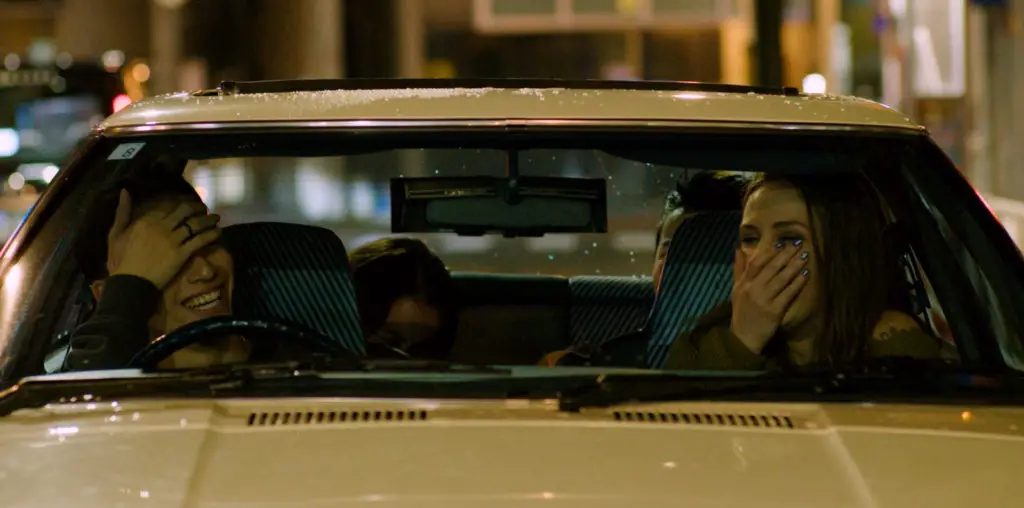
Exactly how far is the U.S. government allowed to go in order to protect our nation? Some would say as far as humanly possible… but what happens when they react and attempt to punish a nonexistent threat?
These questions are but two of the many that “Strange Culture” stirs in the mind. The documentary concerns the story of Steve Kurtz, an artist and college professor who was preparing an exhibition on genetically modifed food for the Massachusetts Museum of Contemporary Art exhibition. Part of the exhibition concerned the usage of bacteria and other inocuous biological specimens, as audiences were allowed to test foods with the biological agents to draw conclusions one way or the other. Then, a few days prior to the exhibition, Steve’s wife died of heart failure in her sleep.
While responding to the 911 call, paramedics noticed Steve’s labeled bacteria specimens, and a few choice books on biological warfare, and they called the FBI, who sent over agents in HazMat suits to quarantine Steve’s apartment while he was brought under investigation for possible bio-terrorism. Within hours of his wife’s death, he was being detained.
Things get worse from there, as Steve’s wife’s body is sent around the country and autopsied a number of times. Despite medical proof that she died of a condition not brought on by the harmless bacteria, as well as proof that the bacteria is readily available for ordering online (I don’t think you can find Anthrax for $20 on eBay), the government pushes for a bio-terrorism conviction of Steve.
Where the ridiculousness of the situation really presents itself is when the logic process of the government is revealed. Steve had books on terrorism in his apartment, Steve was a particularly open-minded and outspoken professor who may or may not at some point said something negative about how the U.S. is run, he was doing an exhibit that was targeted at the Big Business of Agriculture and the genetic-modification of such (something, in the United States, which is common and, at the same time, not openly expressed on the labels of the foods we ingest), he had bacteria and science equipment in his house and, most laughably, he was invited to another art exhibition and the invite for said exhibition had Arabic writing on it so, therefore, he must be a terrorist.
Where the laughter stops and the tragedy begins is that Steve had just lost his wife, and he didn’t even have the opportunity to properly process it and grieve. On top of that, despite every bit of evidence to his innocence, the government presses ever-forward, only instead of simply bio-terrorism they’ve begun to mix things up a bit. Now he’s gone from being investigated for bio-terrorism, to being accused of fraud due to the way he got his scientific equipment via a scientist friend of his (despite the fact that the scientist (who also gets accused of fraud and put on trial) has claimed no fraud, the university Steve worked for claims no fraud and the company that the equipment came from claims no fraud, meaning the U.S. is attempting to try a fraud case with no plaintiffs involved). On top of that, the fraud case is a civil one, but steps are being taken to transfer it into a criminal case instead, where Steve could face, instead of fines, up to 20 years in jail.
Why should this case concern us? Because it’s all about the precedents. If the government can just detain willy-nilly, find no cause and still move forward, it is a gross abuse of human rights. Plus, if a precedent is set that a civil case can easily be transmuted into a criminal case, the government could start detaining for one reason, going to trial for another and then issuing prison sentences for normally non-criminal cases. Finally, from an artistic stand-point, what is terrorist intent? If you write a book, film a movie, perform a song that is critical of the government, could you then be liable for possible detainment and criminal punishment for simply expressing freedom of speech in a country supposedly built around building and protecting freedom in all ways? Hell, by writing a favorable review of the film, am I therefore supporting bio-terrorism and thus deserving of a government file and possible investigation? Where does the shakey logic against art and intent end? For all of the reasons above and more, this case is extremely important… and it’s still ongoing.
Filmmaker Lynn Hershman Leeson takes a novel approach to the subject of the film, mainly in that the story of Steve’s arrest and court trials are still ongoing (yeah, no easy wrap-up or vindication one way or the other in this one) and therefore Steve himself cannot discuss certain details of the case, so instead Leeson uses actors to portray dramatized versions of the events up to and including his arrest.
The actors chosen for the main roles of Steve and his wife are Thomas Jay Ryan and Tilda Swinton, respectively. Ryan looks very little like his real counterpart, but tha’s unimportant. What is important is that the audience is given the facts and the opportunity to connect with the idea of Steve Kurtz (as in, he ceases to be a human once he becomes part of a massive legal precedent setting case, instead being transformed into a symbol). Then when the real Steve Kurtz is allowed to speak, you start to relate to him even more.
“Strange Culture” is an important heads-up to what is going on in our country right now in the name of national security, and a brilliant statement on artistic freedom and the dangers it faces. This film should be seen, should be discussed and is an important document on our times.
